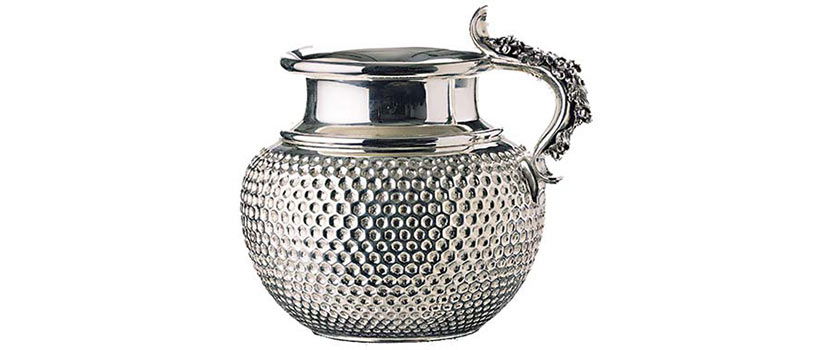BLOG
Managing Interpersonal Skills in Your Wine Career
Pamela Kindel Connors Wine Culture

A lot of hard work goes into investing in your wine career and equally important is making sure that you have developed the right interpersonal skills or what is more commonly referred to as “people skills".
As the lifestyle of most jobs within the wine industry entails longer working hours in a highly social and customer facing environment, the demands can be challenging both physically and mentally. You not only need to adapt to the lifestyle, but you will need to possess well developed interpersonal skills to be successful in your job and throughout your entire career.
Individuals with polished interpersonal skills show greater leadership ability, and strong relationships among their customers and their colleagues. Also, chances of promotion tend to be much higher due to their leadership qualities.

What Do Interpersonal Skills Entail?
Interpersonal skills include great communications, adaptability, empathy, team building, negotiation, persuasion, conflict management, and most importantly self-awareness.
- Communication skills are at the top of the list as they are important to all of the other interpersonal skills. They are both verbal and non-verbal. One should be able to speak clearly, concisely, articulately, and professionally with confidence. Body language also plays a significant role as this includes eye contact, facial expressions, and body stance. Active listening is vital to communication in understanding situations in the workplace and avoiding any misunderstanding.
- Team Building skills lend you to become a collaborator when working within a group of co-workers toward a common goal. It allows you to work collaboratively with others in accepting their feedback and opinions while avoiding conflict and working toward productivity.
- Empathy skills are vital in a highly social and customer facing environment as you need to communicate with compassion and understanding. It will earn you trust and respect with your customers and coworkers. Great empathy skills also lead to greater conflict resolution, which is the ability to resolve issues among customers and co-workers within the workplace. It can involve negotiation and persuasion skills through using empathy in understanding both sides of the situation. Conflict resolution leads to a more positive and collaborative work environment.
- Self-Awareness is important to understanding all of your interpersonal skills. It allows you to be cognitive in how well you are doing in all of the above areas and where you need improvement.
The Benefits
Benefits of well-developed interpersonal skills in the wine industry include:
- Social Confidence
- Assertiveness
- Relationship Building
- Engaging personality / Likeability
- Credibility
- Great first and last impressions
- Emotional Intelligence
The last benefit on the list, “Emotional Intelligence”, is defined as being able to manage your own emotions in a positive manner while utilizing good judgement within your job. It lends you the ability to effectively manage conflict while showing empathy along with excellent communication. It takes a lot of self-awareness to achieve a high level of emotional intelligence, and this is one benefit that continually improves over time.
Measuring & Improving your Interpersonal Skills
While some individuals seem to have naturally inherited good interpersonal skills more than others, it is safe to say that everyone has the opportunity for continued improvement. It is important to be able to honestly measure and evaluate your interpersonal skills. This brings us back to career self-assessment test which is the first thing we do when defining our career path. These tests show us where our strengths and weaknesses currently lie which of course includes all of our interpersonal skills. Once you have this information at hand you may now begin working on areas that need improvement.
Key Pointers in helping you get there:
- Do not be afraid to solicit help from your manager or a trusted colleague and let them know where you are trying to improve. They can monitor your interactions with others and provide valuable feedback. Inquire about any company training whether internal or external that would be beneficial.
- Initiate a prominent level of self-awareness. When you are interacting with someone, be focused on what you are doing with no distractions.
- Be positive and engaging in the workplace while setting all personal feelings and any outside stress aside.
- Always employ an elevated level of emotional intelligence by keeping an even temperature on your emotions. Be calm, confident, and collected. Know your boundaries in your work environment. Think things through before speaking and use good judgement.
- Employ effective communication through the following:
- Eye Contact
- Active Listening
- Body Language
- Have diplomacy when encountering conflict. Show empathy and support by placing yourself in the other individual’s current situation.
- Be assertive by showing confidence in your ability
- Continually maintain your relationships at work and within the industry in order to show others their value.
- And lastly always work with integrity!
To support your development there are many external sources of training. Consider any outside courses in interpersonal development, communications, business management, hospitality management, leadership development, and business sales development. Many companies provide training in person or online through your local colleges, universities, hospitality schools, business schools and professional management organizations. For organizations simply offering interpersonal skills development please look into the following.
American Management Association
https://www.amanet.org
Management Concepts
https://www.managementconcepts.com
Pryor Learning
https://www.pryor.com
Dale Carnegie
https://www.dalecarnegie.com
As with all skills, development of your interpersonal skills should remain ongoing throughout your career. They will prove to be vital to your success working in such a highly social and customer facing environment as the wine industry. Plus, they are critical for climbing the promotional ladder!
Ready to take your wine career to the next level? Check out our series Navigating a Career in Wines & Spirits by the author of this blog, Pam Kindel Connors. You can find the four accompanying WSG Replays hosted by Pam on these topics and more on WSG Studio!



